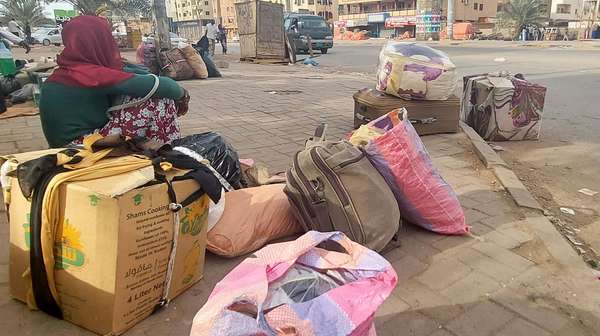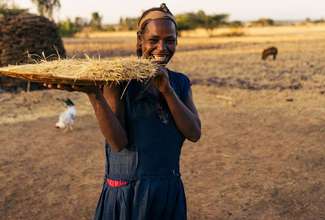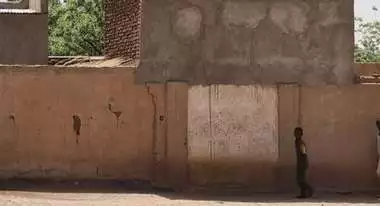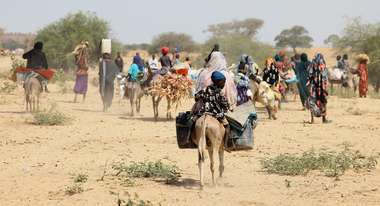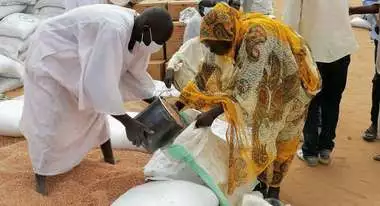The humanitarian situation in Sudan continues to deteriorate. Heavy fighting is worsening the situation for many people in the country.
Hundreds of thousands of people have fled Khartoum
Michael Gabriel is Country Director of Welthungerhilfe in Sudan. In this interview, he talks about the current situation, further dangers and possibilities for an end to the conflict.
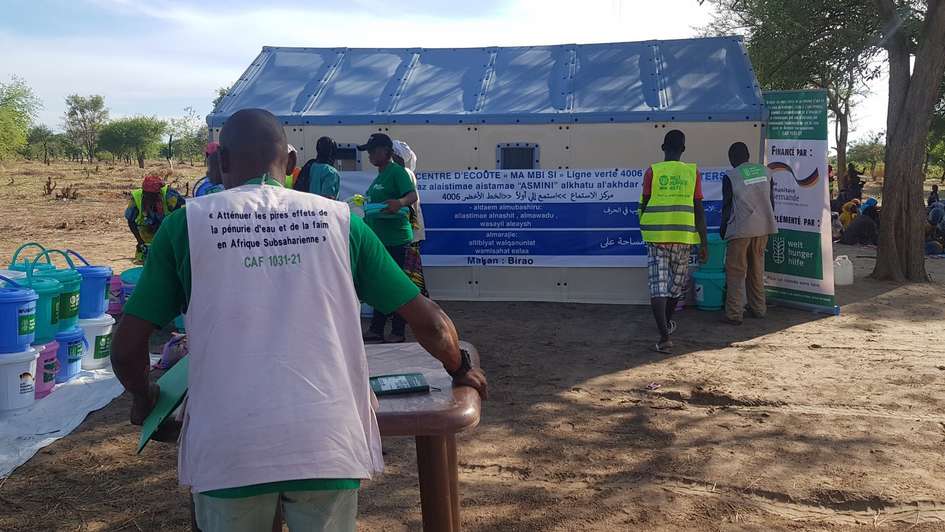
How is the current situation after almost 2 months of fighting and in the light of the recent cease fire? What is the situation of people?
The situation in Sudan remains extremely volatile. There is still fighting in Khartoum and in the Darfur region. And very recently a new level of violence was seen in the public execution of the governor of West Darfur state, in front of the public gathering where he was giving a speech denouncing violence and genocide.
Still, in the east where we are working (Red Sea, Kassala, and Gedaref states) and some other states, conditions are relatively calm and stable – but that could change. And even though there’s no fighting here, the effects of the war are felt everywhere. Banks are not fully functioning, the cost of food and fuel has increased, hundreds of thousands of people have fled Khartoum to find refuge in these areas, the government is not working, medical supply and medicines are in short supply, and in general the entire economy has largely collapsed.
Many have fled to neighboring Chad and Central African Republic. The conditions that before the conflict caused nearly 12 million people to be extremely food insecure have now worsened exponentially, putting millions more at risk of hunger and malnutrition.
What has got to happen to end this violent conflict?
The RSF (Rapid Support Forces) and the SAF (Sudanese Armed Forces) need to see a benefit to stopping the violence. This will require a concerted international effort to create incentives and hold them accountable for violating the peace. But right now, each side feels he can win, so they see no reason to pursue peace over war.

The RSF and the SAF need to see a benefit to stopping the violence.
Michael Gabriel Country Director of Welthungerhilfe in SudanWhat makes the situation in Sudan so complex?
It’s many things. There’s the legacy of colonialism, first of all, which created borders all across Africa that had nothing to do with local demographic, cultural or political realities. This is accompanied by centuries of exploitation of natural resources.
Before South Sudan split off, Sudan was the largest country in Africa by land area. But without modern roads, telecommunications, electricity, schools, or a unifying concept bringing its extremely diverse ethnic groups under the same roof, so to speak, Sudan was unable to develop peacefully.
2019 the sudanese population succeeded in setting in motion a real transition to democracy. Unfortunately, the Global North failed to develop and implement a cohesive and adequately powerful strategy to support them, and the result is what we see now.
Is it possible that the conflict will extend to other countries such as South Sudan?
It could be argued that already this is a proxy war, but if it isn’t just now, it could easily become one. I don’t know if the conflict could easily spread to other countries; I think the surrounding countries prefer to contain the violence to Sudan. But the humanitarian consequences of displacement are already being felt outside of Sudan.
How could neighbouring countries, the African Union or even the Global North influence the conflict?
If the Global North is committed to democracy, to the Sustainable Development Goals (SDGs), and to an Africa with peace, prosperity and social justice, then it will see here the opportunity to focus all possible diplomatic efforts and economic levers to bring the warring sides to the table.
But Sudan’s civil society should have a central place at that table too. The weakness of their position in the power-sharing arrangements agreed to in 2019 is what led to the coup of October 2021, which removed the civilian government and brought these two military factions into a direct collision course with each other.
What is WHH doing in Sudan and neighboring countries?
In eastern Sudan where the security situation remains calm and stable, WHH is working with local authorities and aid agencies to assess the needs on the ground, and with funding from the German Federal Foreign Office will provide assistance such as emergency shelter, water and sanitation for displaced people.





